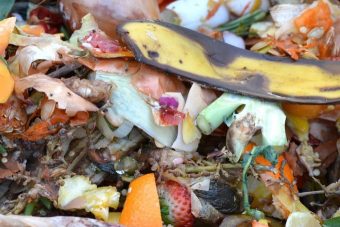
UK waste body WRAP has today unpacked a new strategy to encourage behaviour change among young adults in an attempt to address the UK’s flatlining progress on household food waste.
Speaking at the RWM Conference today in Birmingham, WRAP CEO Marcus Gover set out a strategy that puts younger adults aged 18-34 at the core of a new food waste action plan from the charity.
The move is part of a new approach to target specific demographics and behaviours in an attempt to bring down food waste levels among households, which have stayed stubbornly at around seven million tonnes per year since 2012 despite ongoing campaign efforts.
“A new approach is required, and we’ve developed a more targeted phase in our strategy for specific behaviours and foods through more precise understanding of the subtleties at play,” Gover told delegates.
Younger adults aged 18-34 will be the first demographic under the spotlight, as this age group has the highest rates of food waste in the country, wasting double that of the over 65s.
WRAP believes this is partly down to “trigger points” such as moving away from home, starting a first job or having a family – large lifestyle changes that can spark an uptick in food waste due to a time-poor lifestyle or a lack of food management skills.
Speaking to BusinessGreen ahead of the speech, Gover said the campaign will focus initially on two food-wasting behaviours: buying too much food and storing it incorrectly. It will also hone in on the most-wasted foods in the UK: bread, potatoes, chicken, fruit and vegetables.
However, Gover stressed that while in the past WRAP has devised and led food waste campaigns itself, this time around it is aiming for a more “open sourced” approach that will allow food retailers, campaigners and other organisations to use WRAP data and advice in conjunction with their own ideas.
“What we have got is the knowledge – we know who wastes the most food, we know what food that is,” Gover said. “We know why they waste it. So we will share that information. We will produce playbooks which have the information and some of the messaging we are developing and just make those available for others to use.”
The announcement marks the “start of the process” Gover added, explaining that over the next three to six months WRAP will be recruiting partners to work on the as-yet-unnamed campaign.
Under the industry agreement Courtauld 2025, retailers have set a target to cut per capita food waste by 20 per cent by 2025, or 23kg per person.
“It’s about trying lots of things, and the ones we see working pushing them further until we get more of a network or movement of things going on,” Gover said. “It’s really more about others and less about us going forward.”
Supermarket giant Sainsbury’s welcomed the news, with head of sustainability Paul Crewe adding that it believes successful food waste action will require cross-industry collaboration. “Sainsbury’s has been leading with our Waste less, Save more campaign since 2016, as we know food waste is an important issue to our customers,” he said. “The only way we’re going to solve the problem of food waste is for all aspects of society to join forces and work together.”
In related news, resource efficiency service provider Ecosurety announced today it has teamed up with environmental charity Hubbub to support a series of campaigns to improve the quality recycling materials in the UK.
The campaigns will be designed to generate improved evidence for the system of Packaging Recovery Notes, which proves materials have been recycled, and ultimately reduce costs for recyclers. They are expected to build on Hubbub’s recent campaigns to collect disposable coffee cups for recycling in Manchester and London.
Ecosurety said the first campaign through the new partnership would focus on encouraging more households to recycle domestic batteries, after the UK fell short of its 2016 battery recycling target.
“As recycling and compliance specialists, Ecosurety has seen first-hand just how easy it can be for waste to be rejected because it is contaminated, mixed with other materials, or does not make it into the recycle system at all,” said James Piper, managing director at Ecosurety. “We strongly feel that if UK consumers were better informed and therefore better able to care about recycling best practice, our recycling rates would increase even further.”
Source: businessgreen.com





